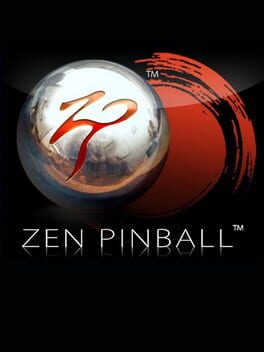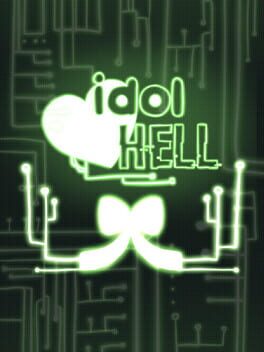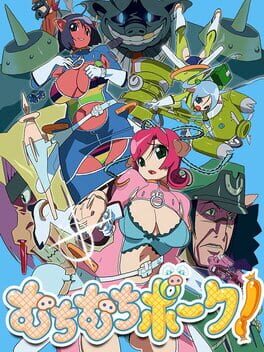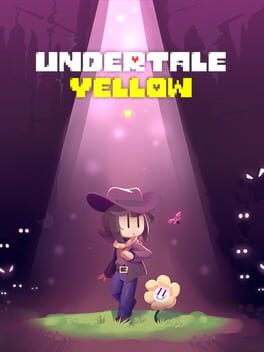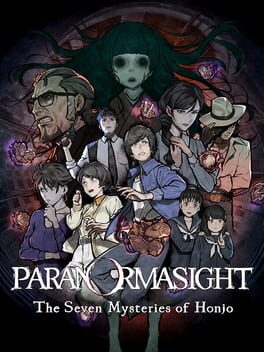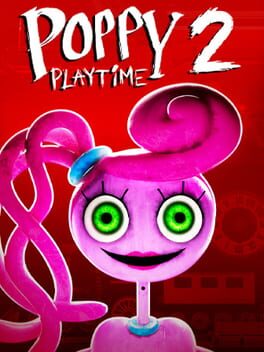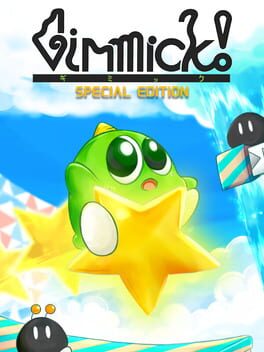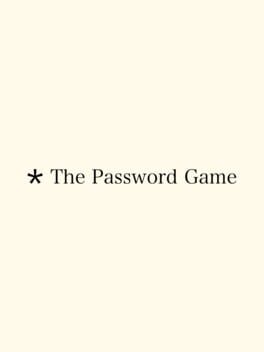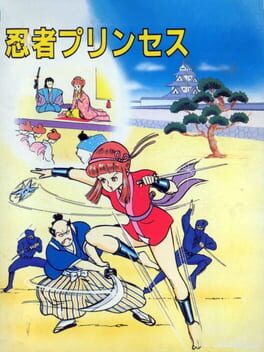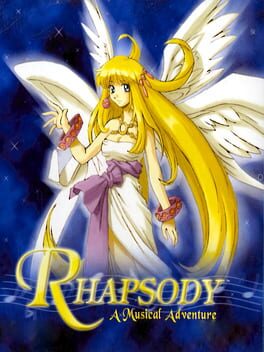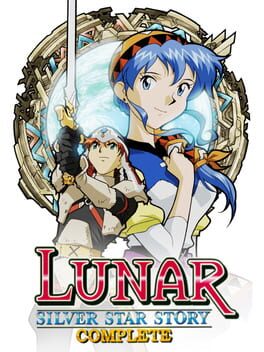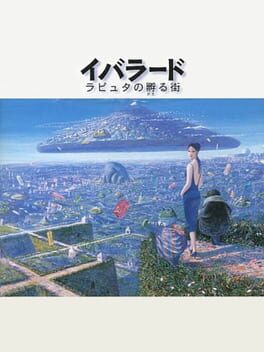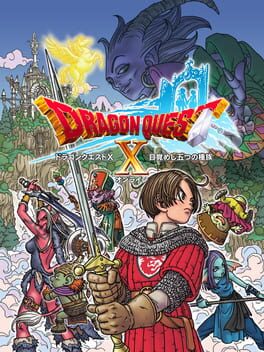Funbil
2011
2023
Surprisingly unpolished considering the asking price. I love a good Touhou clone but this one is gutless and devoid of any imagination. Tedious jokes with stilted writing and a flimsy last-minute attempt at an appeal to pathos. Clearly made by fans of Touhou but seemingly not by anyone who entirely understands the joy of them; bog-standard bullet patterns fill the entire runtime and there is no room for player expression whatsoever. And for a game so intensely themed around music, the soundtrack has next to no personality at all... Deeply disappointing.
2007
2023
God this game rules. Though for a re-release of such an old game (god this game rules) I'd expect a little more effort. The illustrations (god this game rules) that can be used as borders are really cute (god this game rules) but that's not worth the $15 price tag. The only other features it offers is save states and rewind, which are staples of any off-the-shelf emulator. There's also an online leader board, but the score has never really been the point of Gimmick to me (god this game rules). I love this game (god this game rules), but it's hard to justify its price when, for example, the M2 ports of classic SEGA games (god those games rule) are regularly about $2, or Hamster's Arcade Archives (god those games rule) top out at $8. Putting up a straight ROM onto a store front and asking for $15 with next-to-no justification for that price is a hard sell when comparing to anyone doing anything similar, but it is Gimmick (god this game rules) and Gimmick rules (god this game rules). God this game rules.
2023
1985
Ninja Princess is the best 80's run-and-gun game. I’m just going to say it. Obviously my heart lies with next year’s Kiki Kaikai for eventually spawning some of my favorite games of all time, but Ninja Princess is so chock-full of unique ideas that I still have not seen developed on to this day. The key to its excellence is the game’s weapon of choice both for its hero and its enemies: the kunai. This isn’t any old shoot-em-up where the player and the enemies are shooting all sorts of different projectiles at each other; everyone’s got the exact same equipment. What this means is that Ninja Princess can go insanely hard on making this weapon as deep and versatile as possible. The most important feature of the kunai is that two will cancel each other out when colliding, which makes it both an offensive and defensive tactic for both sides to use at any time – well, “any time.” The game’s scoring system is founded on the number of shots fired versus the number of shots landed, meaning it’s always in the player’s best interest to only throw a kunai when it’s certain to hit. This means players who choose to play more defensively will live longer but maintain a lower score, and the more aggressive player will have to be more strategic with their throws – not just in terms of lining up their shots with constantly moving enemies, but also watching their behaviors to predict when an enemy’s kunai might come out as a deflection. All this, on top of the absolutely genius decision to have bosses chase the player backwards through the stage rather than just sitting at the end of it makes for one of the most uniquely engaging overhead shooters ever made. Too many people are sleeping on this one. An early masterpiece of the genre.
2019
This is an incredibly written game – and I mostly mean in quantity rather than quality. Not that the writing is bad even a little bit, it's just So Written. At times it seemed a little too impressed with itself, a little too proud of just how much it had written and just how thoroughly it had considered everything about its world. The deluge of these instances made it difficult for me to resonate with the more rare moments that were clearly supposed to be emotionally impactful. Heaps and piles of world-building featuring places we'll never see and people we'll never know. Does it set the scene? Yes – does it establish the game's bleak tone? Yes – but it is constant and it is incredibly dry. Sometimes I'd go a full hour or so without encountering any moments like this, and suddenly getting caught in the current of yet more world-building would make me realize how much I was enjoying all the dialogue and narration up to this point (by contrast of how much I wasn't enjoying myself anymore). And this was with the full-game voice acting off, I can't imagine playing the whole game with it on. I kept voices on the "Classic" setting, and sometimes even that proved to be too much. The voice actors are great but their performances are absolutely not (save for Kim, of course). I found myself speeding through text faster than normal when they appeared so they would stop sooner. Which is a shame, because the tone and quality of their voices are great reference points to understand their characters better, but unnatural emphases and inflections regularly distracted from the meaning of the sentences rather than adding to it. Disco Elysium is an incredibly smart game but failed to make me feel much of anything, and I'm not afraid to say I value one of those things a lot more than the other.
Functionally, this is a failure of a video game; all the ways a player interfaces with the game are either sloppily opaque, mind-numbingly dull, or both. Mandatory character interactions are frequently tucked away in completely innocuous NPC dialogue, with no indication that any new part of the game has become accessible after talking with them. Combat encounters borrow the positional grid-based systems of LIVE A LIVE or Popolocrois Monogatari, yet any instances of this feature affecting battle strategies are both exceedingly rare and exceedingly shallow. It understands that Pokémon is the hot new exciting game everyone wants to be, but it doesn’t realize we’re well past the inconsequential random monster recruitment of Dragon Quest V. Every dungeon in the game is built using exactly two visual backdrops that get lazily color-swapped with no other visual or thematic variations, and the dungeon designs are never any deeper than a single intended progression path with frivolous branching dead-ends. Strikingly few sections of this game can be intuitively navigated without the guiding hand of a walkthrough. None of the issues in this game ever amount to any kind of mechanical payoff or purpose; the game is simply not constructed well. Though with all this being the case, anybody who critically engages with art has to reconcile with one question sooner or later: at what point does heart surmount technical ineptitude?
The truth is that despite all its damning flaws, I came away from Rhapsody: A Musical Adventure absolutely enamored with it. This game ascends far beyond the threshold where passion overtakes convention, proving that even a blatantly terrible video game can still claw its way into being a masterpiece when it’s so overflowing with love. The sporadic musical numbers sung by noticeably non-professional singers constantly put a huge smile on my face – and not an ironic, sneering smile either, a genuine one! The earnestness of untrained singing voices lent the songs a sincerity that only further drew out the beauty of the music. Similarly, the simplicity and innocence of Rhapsody’s narrative is exactly what allows it to be so effective. The central themes of the story are a little loose and tend to get confused with each other, but there were still several story beats that managed to pool emotions in my eyes – when other story beats didn’t have me audibly laughing out loud, of course. This game’s got a magical tone that knows exactly what it wants to be exactly when it wants to be them, and it pulls them off excellently. Wrap it all up with some of the softest, cutest, warmest character designs and environments the Playstation can render and the result is a game that begs to be loved with just as much love as it has to give… And I do! I love this game. How could I not?
Rhapsody: A Musical Adventure is constructed horribly but crafted magnificently, and in the end that heart is what matters most above anything else. How beautiful for a game like this to exist.
The truth is that despite all its damning flaws, I came away from Rhapsody: A Musical Adventure absolutely enamored with it. This game ascends far beyond the threshold where passion overtakes convention, proving that even a blatantly terrible video game can still claw its way into being a masterpiece when it’s so overflowing with love. The sporadic musical numbers sung by noticeably non-professional singers constantly put a huge smile on my face – and not an ironic, sneering smile either, a genuine one! The earnestness of untrained singing voices lent the songs a sincerity that only further drew out the beauty of the music. Similarly, the simplicity and innocence of Rhapsody’s narrative is exactly what allows it to be so effective. The central themes of the story are a little loose and tend to get confused with each other, but there were still several story beats that managed to pool emotions in my eyes – when other story beats didn’t have me audibly laughing out loud, of course. This game’s got a magical tone that knows exactly what it wants to be exactly when it wants to be them, and it pulls them off excellently. Wrap it all up with some of the softest, cutest, warmest character designs and environments the Playstation can render and the result is a game that begs to be loved with just as much love as it has to give… And I do! I love this game. How could I not?
Rhapsody: A Musical Adventure is constructed horribly but crafted magnificently, and in the end that heart is what matters most above anything else. How beautiful for a game like this to exist.
A quiet, unassuming first act gingerly constructs an expertly-arranged cavalcade of narrative dominos which cascades forward with an unrelenting momentum all the way to the end of the game. This remake was released in 1996, but not much had to be done besides prettying it up (which has been done exquisitely); the original 1992 release was astonishingly forward-thinking, containing the exact gameplay and storytelling DNA that would serve as the foundation for games like Chrono Trigger and Breath of Fire III to achieve their masterpiece statuses. If it wasn’t for a handful of truly horrendous dungeons and an admittedly monotonous battle system (which again, would later find its full potential in Chrono Trigger), this would easily be considered a similarly towering monument in the genre. Instead, Lunar is humbly content staying in the background and allowing its impact on the history of RPGs to manifest in spirit rather than in name. It’s just a few too many flaws short of a true masterpiece, but undeniably an all-timer. For fans of RPGs, this is your favorite game’s favorite game – or rather, a lavishly loving recreation of your favorite game’s favorite game.
Video gamists have a nasty habit of forcing intensely literal parameters on works that present themselves in vague or abstract ways. In my experience with these kinds of people, it comes from a place of truly and authentically appreciating the work, but not having the imagination to accept that art can serve something other than a comprehensive series of tangible events. I always presumed this was largely on the fault of video game players, but this adaptation of Inoue's paintings proves that developers can be just as bereft of imagination as well. What a shame.
